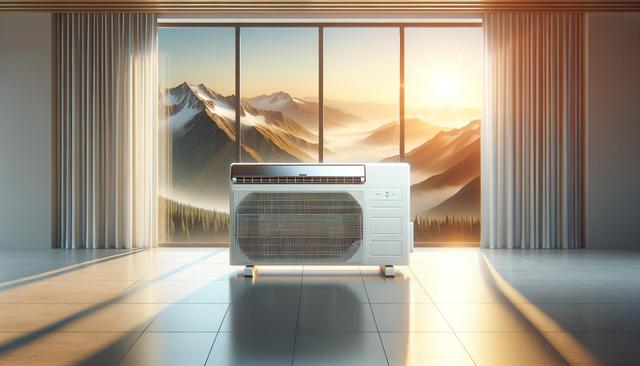How Air Conditioners Can Affect Your Throat and Head
While air conditioning is essential for maintaining a comfortable indoor climate, it may also lead to certain discomforts. One common concern is whether air conditioners can cause dry throat or headaches. These symptoms often arise when the air is overly dehumidified. Air conditioners remove moisture from the air, and in doing so, they can dry out mucous membranes in the throat and nasal passages. This dryness may lead to irritation, coughing, or a scratchy sensation in the throat.
In addition, poorly maintained air conditioners can circulate allergens or dust, which may trigger sinus congestion or tension headaches. The sensation of a stuffy or tight head, especially after long exposure to cool, dry air, is not uncommon among frequent AC users. To reduce these effects, consider using a humidifier in conjunction with your air conditioner, and ensure the system is adjusted to a moderate temperature rather than extremely cold settings.
Recognizing Symptoms of Mold Exposure from AC Units
Mold can develop in air conditioning systems when moisture accumulates in dark, unventilated areas such as ducts, filters, or drip pans. If left unchecked, mold spores can be spread throughout your living space, potentially causing a range of health issues. Understanding the symptoms of mold exposure from AC systems is crucial for early detection and prevention.
Common symptoms include:
- Persistent coughing or sneezing
- Itchy or watery eyes
- Skin irritation
- Worsening asthma or respiratory issues
- Fatigue or headaches
If you or your family members notice these symptoms worsening when the AC is on, it may be time to inspect the unit for mold growth. Regular cleaning and professional maintenance can help prevent mold buildup and protect your indoor air quality.
The Importance of Clean Air Filters
One of the most overlooked components of an AC system is the air filter. Dirty or clogged filters can have a significant impact on both the efficiency of the unit and your health. The health risks of not cleaning air filters include increased exposure to dust, pollen, pet dander, and other airborne particles. Over time, these contaminants can aggravate allergies, asthma, and other respiratory conditions.
Some potential health consequences include:
- Frequent coughing and sneezing
- Breathing difficulties
- Increased susceptibility to colds and flu
- Dry skin and throat irritation
To maintain good air quality, it’s recommended to check and replace or clean your AC filters every one to three months, depending on usage and environmental factors.
Preventive Measures for Healthier Use of Air Conditioning
Using an air conditioner does not have to compromise your well-being. With a few preventive steps, you can enjoy a comfortable indoor climate without the unwanted side effects. First and foremost, ensure your AC unit is serviced regularly. This includes checking for mold, cleaning filters, and inspecting coils and ducts for dust or microbial growth.
Other preventive tips include:
- Maintaining indoor humidity levels between 30% and 50%
- Using a programmable thermostat to avoid extreme cooling
- Ensuring proper ventilation in rooms
- Limiting exposure to AC drafts, especially while sleeping
Implementing these practices can help reduce the likelihood of symptoms such as dry throat or headaches and minimize the risks associated with poor air quality.
When to Seek Professional Help
If you suspect your air conditioner is contributing to ongoing health problems, it may be time to consult a professional HVAC technician. Unusual noises, persistent odors, or visible mold are signs that the system may require attention. Additionally, if symptoms like headaches, sore throat, or allergy flare-ups persist despite regular maintenance, a thorough inspection can identify hidden issues.
Professional servicing includes tasks such as:
- Deep cleaning of internal components
- Checking for mold, leaks, and blocked drainage
- Testing air quality levels
- Upgrading filters to HEPA or high-efficiency options
Taking these steps ensures your air conditioning keeps your environment cool and safe without compromising your health.
Conclusion: Balancing Comfort and Health with Your AC
Air conditioners are a valuable tool for comfort, especially in warmer seasons. However, understanding their potential health impacts is essential for safe and effective use. By being aware of issues like whether air conditioners can cause dry throat or headaches, recognizing symptoms of mold exposure from AC units, and addressing the health risks of not cleaning air filters, you can take proactive steps to protect your indoor air quality. Regular maintenance, proper humidity control, and prompt attention to symptoms can help you strike the right balance between cooling and health. Staying informed empowers you to enjoy the benefits of air conditioning while minimizing any negative effects on your well-being.




Leave a Reply